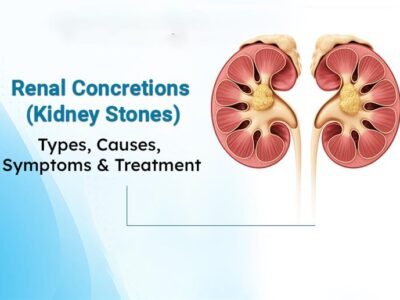What is Meant by Acute Renal Failure?
When your kidney loses its functionality rapidly, you are said to suffer from acute renal failure. It is usually known as acute kidney failure. Unlike chronic kidney failure, in this type of renal failure, the degradation of your kidney occurs within a span ranging from a few days to a week. The secondary difference between chronic kidney failure and acute renal failure is that the latter, in certain favorable conditions, can be temporary.
The functionality of the kidney is multi-dimensional. The kidney not only works to filter the elements of urine from the blood but also maintains the electrolytic balance of the body. Kidneys are also involved in blood pressure regulation.
The constriction in the functionality of the kidney is caused by some kind of damage leaded by an underlying health condition such as diabetes. In chronic renal failure, the degradation of the kidney happens over a long period of time and most often this type of degradation is permanent.
What Are the Symptoms of Acute Renal Failure?
In most renal failure cases, the symptoms are very minimal at the initial stages. Usually, the patients suffering from acute renal failure get to know about their condition while getting tested for some other health issues. The intensity of the appearance of symptoms of acute renal failure depends upon the stage of renal failure and its cause of it. Some of these symptoms are:
- Low frequency of urination
- Inflammation of ankles and feet due to fluid retention
- Less energy and concentration
- Trouble in breathing
- Felling itching
- Pain in the joints
- Loss of appetite
- Vomiting and nausea
- Cramps in the muscles
- Fever
- Pain in the chest
- Falling unconscious
- Pain in the
What Are the Causes of Acute Renal Failure?
Renal failure can have multidimensional causes but acute renal failure is mainly caused by one of the following causes:
- Chronic kidney infection
- Chronic liver disease
- Intake of painkiller
- Medicines of hypertension
- Cardiovascular disease
- Chronic dehydration
- Tumor in the prostate or bladder
- Blockage of urine by clots in the tract
- Prostate enlargement
- Stones on your kidney or ureter
- Bladder damage
- Cholesterol buildup
- Diseases like Glomerulonephritis, autoimmune disease, etc.
Who is at risk of acute renal failure?
There are some factors that can add to the possibility of developing renal disease. These factors are generally some underlying diseases. Some of the most common risk factors of acute renal disease are:
- Any disease for which you have been admitted for a long time in the hospital
- If you are suffering from diabetes
- Old age
- People with heart-related issues
- Hypertension
- History of kidney-related issues
- History of liver disease
How is Acute Renal Disease Diagnosed?
There are some tests that are considered general protocols for the diagnosis of renal disease. These tests are as follows:
- Urine flow test: It is done to measure the urine flow during the period of 24 hours
- Normal urine test: This test is done to identify and measure the extinct of proteinuria.
- Sodium serum test: To know whether the person is suffering from hyponatremia or hypernatremia.
- Creatinine test: When your kidney is suffering from acute renal failure, the creatinine content in your body raises to an abnormal level. This is measured by the creatinine test.
- Blood test
Some of the tests that are done for the diagnosis of acute renal disease are a bit rare. These tests are as follows:
- Biopsy: In this test, a small area of tissue is taken from the kidney with the help of a specialized needle. This tissue is then examined for abnormalities under a strong microscope in Kidney Biopsy
- CT scan, Ultrasound, and MRI: These imaging tests are done to understand the structural deformities of the kidney.
Treatment of Acute Renal Disease
As said earlier, acute kidney failure, if not accompanied by any other health issues, can be temporary. This means acute kidney failure can be well treated on its own or by a practitioner using some methodologies.
In some cases, when acute kidney disease is accompanied by other complications, the treatment option involves certain measures. These measures are:
- Change is diet
- Prescribed medications
- Dialysis
How Can You Prevent Acute Kidney Disease
The proverb ‘prevention is better than cure’ is not only a well-structured sentence but a well-observational thought. It is always better to be prevented a condition such as acute renal failure. These are the steps you can take to prevent yourself from this life alternating disease:
- Always be vigilant of what you are taking as a medication. Avoiding over-the-counter medications can be one of the greatest preventive measures for renal failure
- Never take the doctor’s advice for granted. If you have been diagnosed at earlier stages, the doctor may have given you the instructions accordingly. On the other hand, diagnosis at other stages of renal failure will require other measures which only a well-abled doctor can advise.
- Follow a disciplined diet plan that is in accordance with your healthy lifestyle
To get an appointment at Alfa Kidney Care for your early diagnosis and treatment of acute renal failure, contact us at Alfa Kidney Care


